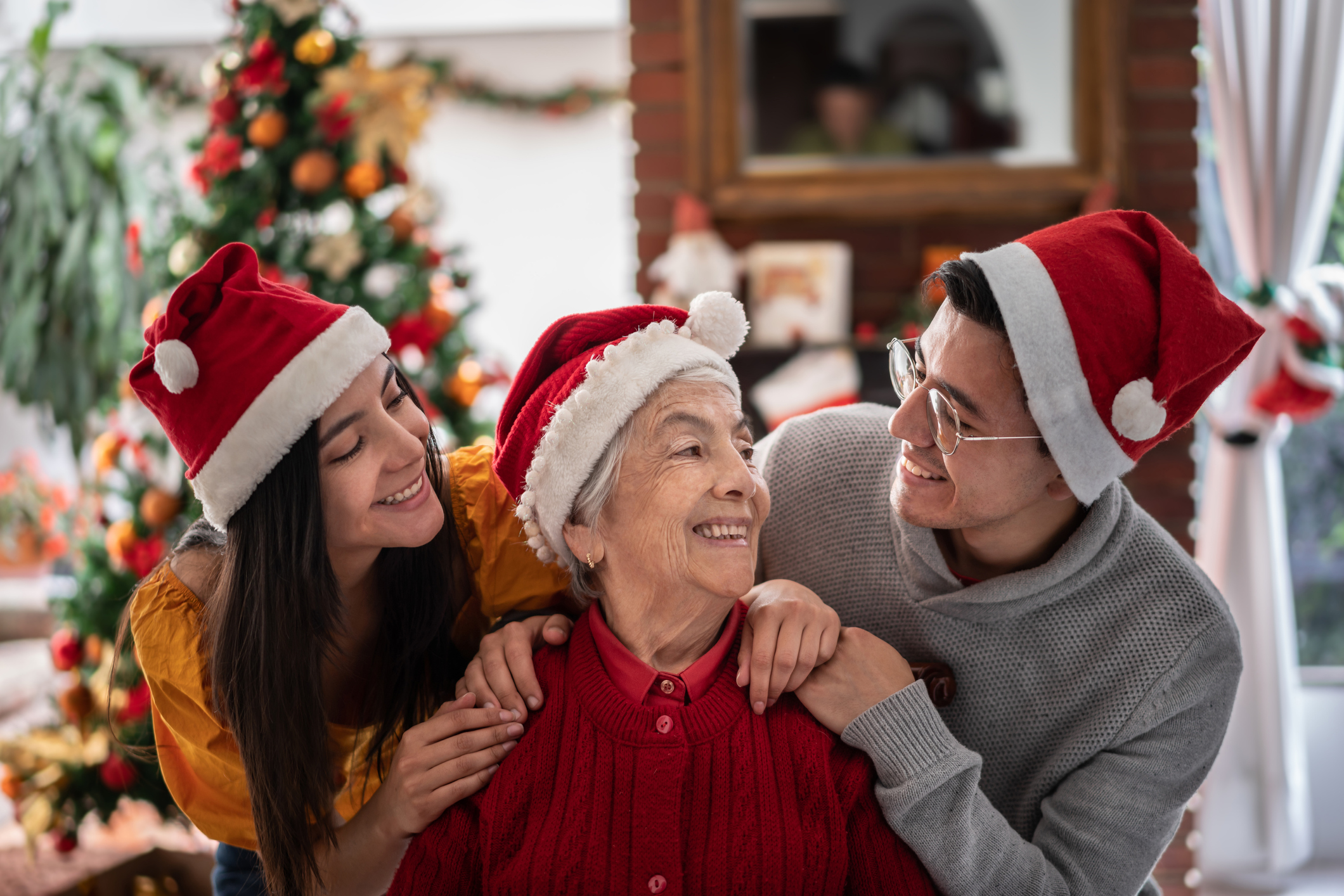As relatives catch up this festive season, younger family members may observe some changes in grandma, abuela or great auntie.
“Holidays are often when adult children who don’t live nearby first notice ‘something’s off’ with mom, dad or another older family member,” says Dr. Travis Urban, a board-certified neurologist at Sutter California Pacific Medical Center’s Ray Dolby Brain Health Center.
But what are signs of normal signs versus dementia or Alzheimer’s disease?
What Is Normal
For starters, Dr. Urban says as people age, all parts of the body, including the brain, change.
According to the Centers for Disease Control and Prevention, normal brain aging may mean slower processing speeds and more trouble multitasking, but a person’s routine memory, skills and knowledge are stable.
Examples of normal forgetfulness as we age include occasionally forgetting a person’s name but recalling it later in the day, forgetting our glasses sometimes or needing to make lists more often to remember appointments or tasks.
“It’s when memory loss worsens and interferes with daily life that is cause for concern,” says Dr. Urban. These include situations like when a loved one gets lost while driving a familiar route or has trouble recalling very recent events and conversations.
Signs to Watch For
Dr. Urban says families should be concerned when older loved ones are repeating questions that were already answered, especially if this is occurring within the span of minutes. “Rapidly forgetting new information is never a sign of normal aging and warrants a medical evaluation,” he says.
Other signs to watch out for include:
- Frequently misplacing items (particularly if the older person is in an environment that should otherwise be familiar to them)
- Recalling the names of common words (like spoon or car or the names of family members, not actor’s names)
- Mixing up details from recent events or making up pieces of a story that aren’t true
- Difficulty keeping track of the dates of upcoming events
- Uncharacteristically poor judgment such as making excessive financial gifts or falling victim to scams
- Withdrawing socially or appearing more paranoid, anxious or depressed
- Having difficulty with tasks or games that used to be familiar to them
“It’s important not to ignore your instincts that something may be different about a loved one,” emphasizes Dr. Urban.
It’s important, too, to note that dementia and Alzheimer’s are different. Dementia is a general term used to describe a set of symptoms that affect cognitive abilities, memory, thinking and behavior. It is not a specific disease but rather an umbrella term for a group of symptoms. Alzheimer’s disease is the most common cause or type of dementia, accounting for 60-80% of dementia cases.
While there’s no cure for Alzheimer’s disease, more treatments are becoming available.
“As of July 2023, for the first time in the history of Alzheimer’s disease, we now have a treatment – lecanemab – that can slow the progression of the disease,” says Dr. Urban. “Early diagnosis is important because we know these new treatments are shown to be more effective earlier in the disease course.”
A Dedicated Center for Brain Health & Alzheimer’s Care
If you suspect a loved one is showing signs of memory loss, it’s worth having a conversation with their primary care provider. He or she may determine a more thorough workup is needed.
CPMC’s Ray Dolby Brain Health Center in San Francisco was launched in 2012 by a major philanthropic investment from Dagmar Dolby and family. Since then, the center has helped hundreds of families deal with the tremendous stress of an Alzheimer’s disease diagnosis and their loved one’s subsequent care.
“CPMC’s innovative, family-centered model is robust and unique,” says Dr. Urban. The multidisciplinary team involves physicians, social workers, neuropsychologists, medical assistants and administrators all working under one roof. Dr. Urban adds that the team compassionately treats people with a range of cognitive impairments, including Alzheimer’s.
Based at CPMC’s Davies campus in San Francisco’s Castro District, the team addresses memory care through advanced diagnostics, research and the latest clinical trials, psychosocial support as well as access to community resources and the Alzheimer’s Association. Family and caregiver support is a big component of each person’s treatment and care plan.
“As individuals and families adjust to a new Alzheimer’s diagnosis, it can be overwhelming. We take the journey with them, step by step,” he says.
The number of people diagnosed with Alzheimer’s disease is predicted to increase nearly 50% by the year 2030. In response, CPMC’s Ray Dolby Brain Health Center will continue to expand its services by growing its care team, launching additional clinical trials and enlarging its physical space.





